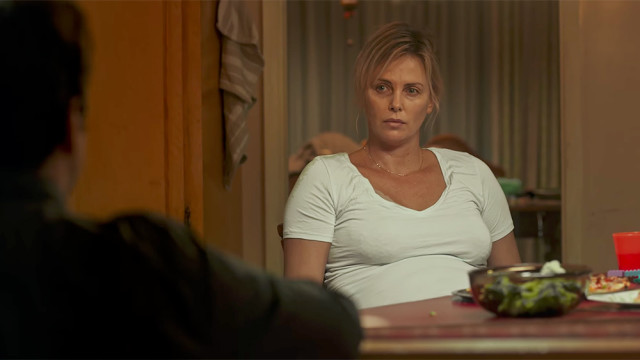It’s easy to tell if a movie’s not going to work. You watch the trailer and instantly sense that something is off (check here and here for exhibits A and B). You don’t always know what it is. But you know you’re not going to waste 2 hours and 15 bucks of your life on it. For the average moviegoer, this reasonless choice is fine. But the aspiring screenwriter must know why every marketed release fails so that they don’t make the same mistakes themselves. And yes, you can often identify giant screenwriting mistakes right there in the trailer. So today, I’m going to take you through 15 failed films and the screenwriting reasons why they bombed. Let’s get into it.
Downsizing – It’s unclear what the point of the movie is. After our hero shrinks, what’s his goal? What’s the story’s destination? For example, when I watch Infinity War, I know the goal is to stop Thanos. That point is clear as day. These trailers displayed no point to the story. So it wasn’t surprising, then, that the movie didn’t have a point either.
Tomorrowland – The premise promises a movie that never arrives. You tell us a movie is about Tomorrowland, yet we barely spend any time there. Not only that, but Tomorrowland is lame. If you’re going to promise us something, make sure your script delivers it.
Logan Lucky – It’s a genre-less movie. Young writers commonly assume that genre doesn’t matter. Despite all his experience, Soderbergh keeps making the same mistake as well. You have to write in a genre or sub-genre that has a proven track record of turning a profit. “Wacky indie dark comedy heist” is not a genre that’s ever proven to be successful. So of course the movie didn’t catch on.
127 Hours – Just because something happened in real life doesn’t make it a movie. A movie still needs movie-like elements to work. Having only one character stuck in a visually unappealing rock crevice… there’s nothing cinematic about that. Nor is it a situation that lends itself to 2 hours of dramatization. Maybe you could make a 20 minute short about the subject (at most). But the point is, just because something dramatic happened in real life doesn’t mean it’s right to turn into a movie (see also: Sully).
The Five Year Engagement – I don’t know if this movie is any good or not. I never saw it. The reason I didn’t see it? The title. This shows just how badly a terrible title can hurt a film. A title needs to be either creative or clear. This is neither. It slams you over the head with its bluntness yet leaves you confused. So it’s a movie about… a sort of long engagement period? Why is that funny? Why is that topic worthy of a movie?
Inside Llewyn Davis – An example of how a miserable main character can destroy any chance of drawing an audience. Every hero must have something about him we can root for. This character had nothing.
The Place Beyond The Pines – The Place Beyond the Pines is what happens when a writer writes to impress film school classes as opposed to real people who go and see movies. Sprawling, unfocused, hyper-serious, long. You can write films like this if you want. But don’t expect anyone besides hardcore cinephiles to like them.
Tully – The concept is simply too small. A mother gets help raising her children. Um, okay. The only thing marketable about this movie – its twist – can’t be marketed. So what’s left?
Foxcatcher – Your script can be slow. Your script can be depressing. But your script cannot be slow and depressing. People typically see movies to escape reality and be entertained. To give them something that embodies the opposite of that is a risk that always ends in failure.
Ghostbusters – Tried to force an agenda on audiences at the expense of telling a great story. If you start putting agendas first, whether they be social, political, personal – the movie comes off as a commercial for your way of thinking rather than a piece of entertainment. Audiences are too savvy for that.
Valerian – “Everything-and-the-Kitchen-Sink” Syndrome. There isn’t any focus. Only a desire to throw as much crazy as possible at the screen and see what sticks. Every movie, even sprawling fantasy or sci-fi, must feel focused in some way. Without a strong story engine and clear goal, scripts like this can quickly descend into messes, which is exactly what happened.
Draft Day – Outside of boxing, fictional sports movies are almost always bombs. People who go see sports movies want to feel like what they’re watching happened. Of course, it didn’t help that both the director and lead actor constructed what was originally a fast-paced fun script and turned it into something that plays to the 80-and-older crowd.
Sex Tape – Dated material. The worst thing you can be is late to the party on a subject matter. This is why it’s advisable to stay away from trends. Although, going off of interviews, it sounds like this was made solely because Sony Studios head Amy Pascal just learned about sex tapes in 2013. Stay current people!
The Mummy – Absolutely positively nothing new. Even Tom Cruise’s Mission Impossible films have a stunt or two that’s never been done before. This had nothing new. When you don’t have a single new thing to offer with your screenplay, why would anyone show up to see your movie?
Blade Runner 2049 – A tsunami of self-indulgence killed this one. Nearly every scene took twice as long as it needed to. Don’t fall in love with your stuff so much that you forget to keep your story moving.


